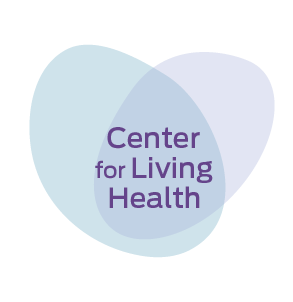children with
special healthcare needs

Exceptional kids need
exceptional care.
Having been parents of a disabled child with special health care needs, we can appreciate the love, the joy, the heartache, and frustrations that are part of daily life for families with a child with atypical development.
In the US today, one in five children has a chronic physical, developmental, behavioral, or emotional condition.
These children have unique health care needs.
A VOICE YOU CAN TRUST
We are committed to helping provide you and your child with the attention and level of care that will nourish their gifts, support their challenges, and help them reach their potential, and lead more fulfilling lives.
helping your child shine
At Center for Living Health, you get not only world class pediatrician Dr. Allen, who has helped thousands of exceptional children and their families navigate the journey to optimal health, but the calming therapeutic touch of Linda Allen helping to organize and down regulate your child’s nervous system, helping them feel comfortable and safe in their body.
Individualized Care with a Family Centered Approach
We take time to hear your story. To know you and your child so we can provide a plan and therapy that is personalized to meet the unique needs of your child.
a comprehensive approach
In addition to the thorough evaluation he does for every patient, Dr. Michael Allen listens to you and all of your concerns. He strives to see your child and the root cause of the challenges that are presented.
He specializes in sensory processing dysfunction (SPD) and teaches parents how to do sensory therapies to help integrate the sensory system (sensory diet), and retained primitive reflexes, which act like a barrier to development, if present. He works as part of your team to integrate all of the support your child will need to thrive.
Early intervention helps give your child a solid foundation from the start. Dr. Allen’s astute eye and years of experience ensures your child will receive all the support they need to thrive.
a soothing touch.
Linda Lazar Allen uses her vast knowledge of neuro-craniosacral therapy (NeuroCST) to help your child thrive, through down regulation of the nervous system, integration of sensory processing dysfunction (SPD) and identification and release of retained primitive reflexes (RPR).
Benefits of neuro-cst may include your child being more calm and grounded, lessened behavioral problems, improved sleep, less aggression and restlessness, improved mood and concentration, improvements in school and developmental spurts.
early intervention + treatment plan = thriving child
By diagnosing special healthcare needs early, we can help you ensure your child gets the necessary tools to lead a fulfilling life.
If you have concerns that your child need some extra support or has special healthcare needs, contact us for an appointment.
Symptoms of Autism Spectrum Disorder (ASD)
Children with ASD often display many of the following symptoms:
Failure to make and hold eye contact with others
Trouble listening to others or looking at others
Inability to share enjoyment of activities or playing with objects
Difficulty maintaining conversations
Responding slowly or not at all to another person calling their name or getting their attention
Repetitive or restrictive behaviors that may include: repeating words or phrases, holding interest in specific topics and interests (especially numbers and details) or obsessing over very focused interests
Irritability
Problems with sleep
Symptoms of Sensory Processing Disorder (SPD)
Children with SPD often are sensitive to the world around them. Here are 10 possible signs of SPD:
Hypersensitive hearing: Certain everyday sounds may be intolerable for children
Touch aversion: may reject any form of physical contact, bothered by clothing, being barefoot
Under sensitive: craves deep pressure, may be unaware danger - ie may climb higher than safe,
Poor motor coordination: may be clumsy, awkward, and more likely to lose their balance, poor fine motor skills
No sense of boundaries: may lack a sense of personal space when interacting with others, tend to touch everything around them
High tolerance for pain: may not notice or delayed response when they hurt themselves.
Overly aggressive:Oftentimes these children aren’t aware of that they may be hurting someone else
Easily distracted: often easily distracted, may struggle to focus in classroom, fidgety and unable to sit still for long periods of time.
Impaired language development: may struggle to understand instructions & questions, may also have difficulty reading aloud.
Difficulty learning new things: struggle learning new activities, and often take longer than other children to master the same activity. .
Symptoms of Retained Primitive Reflexes
As we develop, we use what are called Primitive Reflexes to assist us in that development. However, once the developmental milestone is reached, we are meant to integrate and release the primitive reflex. If we do not, it is called a retained primitive reflex, and may become a barrier to development. Symptoms may include:
Fatigue
Bed wetting
Balance/coordination issues
Symptoms of Autism (non-verbal, poor eyecontact, inflexibility, lack understanding of social cues)
Picky eaters and other Eating disorder
Visual problems
Tight muscles
Memory issues
Symptoms of ADD/ADHD (lack focus, distractible, hyperactive,impulsive
Learning disabilities (reading, writing, math,spelling, dyslexia, etc)
Sleep issue
Fears
Anxiety/depression/ocd
Low self esteem
Aggression/temper tantrums
Motion sickness
Digestive issues
“At Center for Living Health, you’re not just treating my child’s symptoms, but insuring that my children are thriving.”

